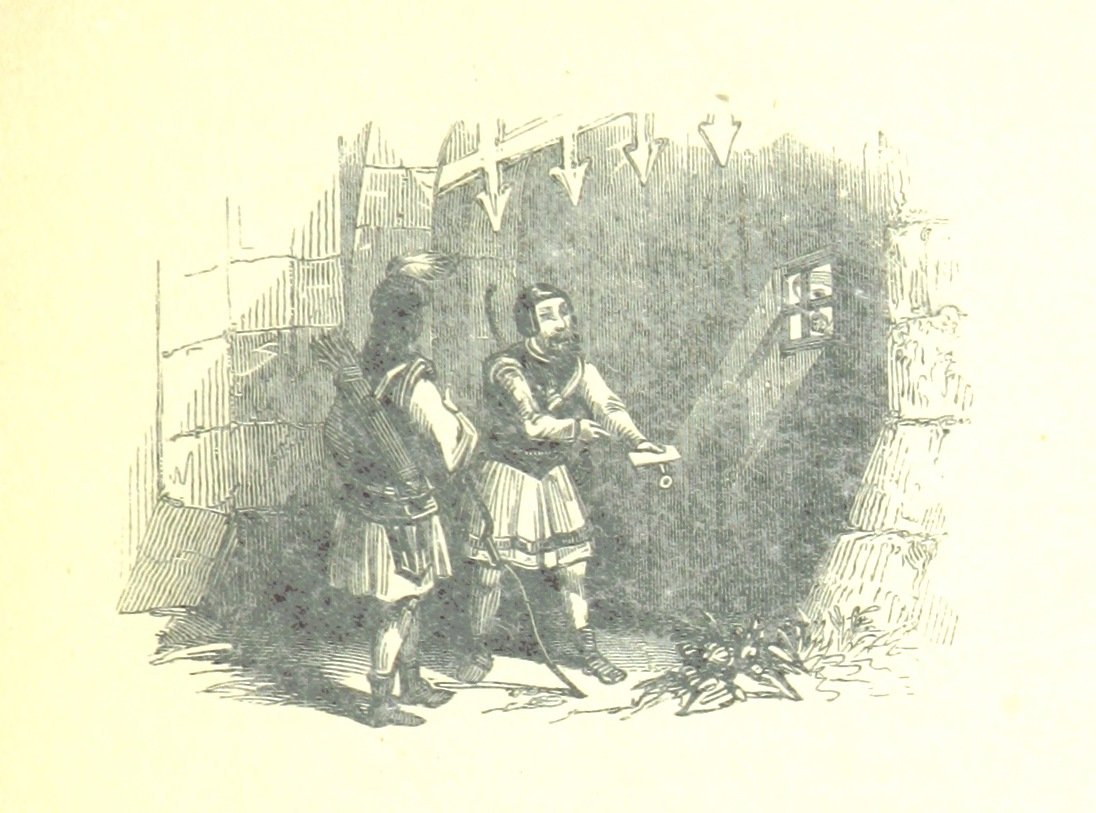Who actually made sure that things got done in a Medieval town? While there were a lot of different roles and responsibilities, three stand out.
Note: This is a general example of historical practice. Actual practices varied by region and over time. Offer void where prohibited.
The History
Besides the local lord and lady, there were three major administrators in a settlement's life.
The steward worked directly for the lord/lady, administering his or her lands and doing the general bookkeeping. Basically, money came in from taxes and fines, and the noble had a number of expenses (primarily upkeep of public services like roads and bridges, and salaries for the noble's many servants [which is itself a form of public service]). The steward made sure that the money flowing in went towards all those expenses, and would tell the lord/lady of any major discrepancies. A noble might employ one steward for all his domains, or one steward for each town and a head steward to manage them.
The bailiff or sheriff was responsible for ensuring that justice was carried out. The bailiff held court in the manor hall periodically (in a small town, perhaps twice a month; in a city, every day). If a crime was committed, the accuser and accused brought to the bailiff a record of their "tithing" (small groups to which they'd been assigned), and the bailiff would inform them of the next court day. The tithing would ensure that both accuser and accused actually showed up.
On court day, the bailiff would not actually pass judgment; instead, either a jury was convened every court day and passed judgment, or a separate judge would be there on his rounds. (This varied considerably from region to region and country to country.)

The reeve was a locally elected position, responsible for ensuring that the work called for by the noble actually got done, such as public works projects (like repairing roads, repairing bridges, rebuilding the church, or extending the castle) and tax collection. While a paid position that freed the reeve from farming obligations, it was a thankless and unpopular job.
How to Use This In a Fantasy RPG
A steward often knew more about the exact monetary situation of a noble's lands than the noble did, and was thus a very useful source of information. If the PCs suspect that somebody's cheating the noble out of money, the steward should be the first person to whom they talk.
The bailiff will know who's been on the wrong side of the law. If the PCs are investigating a crime or a known criminal, they should talk to the bailiff.
Separately, PCs first entering a new town or city would do well to find its bailiff and ask him or her about any local laws before the PCs accidentally break one.
The reeve's a great source of information about any new major projects going on, such as reinforcing a wall to defend against an upsurge in orc attacks, or repairing damage caused by a troublesome nearby wizard. The reeve's also probably the most desperate for a sympathetic ear, and is most likely to befriend the PCs if they're even the slightest bit nice to him.

![[Atom feed]](/user/themes/geek-archaeology/images/atom-feed.png)
![[RSS feed]](/user/themes/geek-archaeology/images/rss-feed.png)
![[iTunes podcast feed]](/user/themes/geek-archaeology/images/itunes-feed.png)